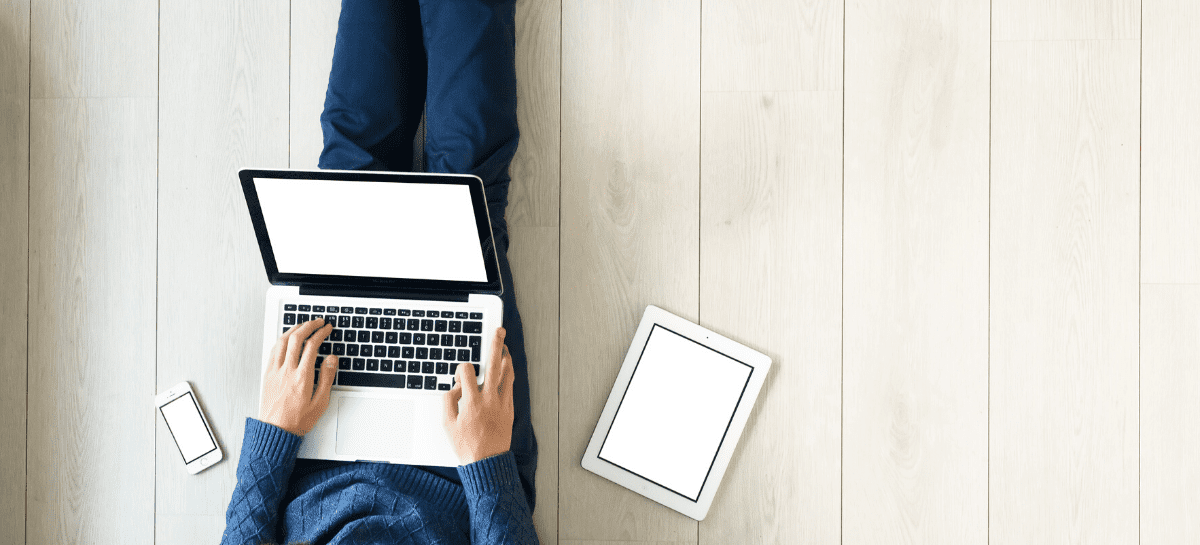As a graduate student who researches privacy, I was previously aware of the potential privacy issues related to virtual learning. The COVID-19 pandemic, however, has forced many students across the globe to attend school exclusively online, which means we now grapple with online privacy issues every day more than ever before. I’ve also experienced how the sudden shift to online learning undercuts the social value of education and other essential learning opportunities that college campuses used to provide.
When I attend classes online, my webcam familiarizes professors and classmates with the pictures on my walls and documents anything I say or do. Indeed, the university is required to record all lectures and post them to an online learning management platform that their students can access. Given this potential invasion of privacy, I wondered, do I have to turn on my camera for class? If I don’t, how will professors know I am actually participating? Will my decision to protect my privacy harm my participation grade? What if I say something stupid, which is then recorded for everyone to remember? For how long do webconference platforms like Zoom and the learning management platforms retain the recorded videos?
I thought hard about these questions prior to beginning my virtual education a few weeks ago, and decided that I would not turn on my webcam for most recorded lectures. I can make my presence known by using the chat function of Zoom, and I find it much less anxiety-inducing to stare at the slides presented in class rather than at my recorded face.
Yet, in doing this and observing other students making the same decision, I realized something else: how do I know that anyone without their webcams turned on is actually attending lectures, especially in classes on Mondays at 8 a.m.? I turn my webcam off to protect my privacy, but others may be doing so to stay in bed or do something completely unrelated during the class. Many schools have removed grades from the equation; without real consequences or accountability, some students have stopped caring. To be clear, this isn’t a negative trend; many students have larger issues to worry about during this uncertain time, such as they or a loved one becoming ill, unemployment or other financial strains, or additional stresses of the pandemic.
However, decreased participation makes distance learning less engaging for students who are fortunate enough to be able to focus on school. Collaborative efforts and enthusiasm have plummeted, discouraging those who are trying to maintain hope and connections through schoolwork. It doesn’t help to remember that post-secondary students are still paying for a graduate education while getting far less than the full experience.
Part of that experience involves the freedom to discover not just what to study, but how to learn. Each student has a unique way of learning; as the years pass, students figure out their secret to success. Some people need to go to office hours weekly to understand the concepts discussed in class. Others enjoy sitting in a coffee shop, finding inspiration for good writing through the bustle around them. To get quality work done, I need to settle myself in a quiet library before 9 a.m. and work uninterrupted for hours. This practice is atypical, but it’s my method for success. And about six weeks ago, the necessary move to virtual learning yanked away this and thousands of other students’ trusted routines––the practices we’ve discovered that make our learning possible. Suddenly, we had no choice but to turn our bedrooms into classrooms, libraries, coffee shops, office hours, and everything in between.
Virtual learning was the obvious choice for schools to make in response to COVID-19. However, it leaves schools and individual professors in tough situations, where they must decide to either run their classrooms as usual or acknowledge that their previous expectations are no longer realistic. I want school to feel as normal as possible given that I am still paying a steep price for it; others may want classwork to slow down to accommodate the current situation. Unfortunately, in either case, students are missing the educational experience they would have if learning were conducted in person.
I know that the quality of my work and ability to focus have suffered and will continue to decline simply because I can no longer take refuge in the library. I imagine that many other students feel the same way about their routines. Despite the amazing efforts of professors, today thousands of students are working on their respective degrees from their bedrooms, and with that comes a shift in what their education can and will be.
Alexis Shore is a recent graduate from Cornell University with a B.S. in Communication. She is currently pursuing an MA/PhD at Boston University in Emerging Media Studies with research interests in education privacy as well as the societal effects of increased biometric technology and surveillance.


